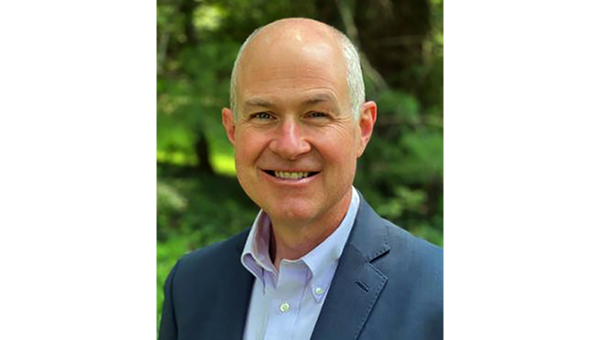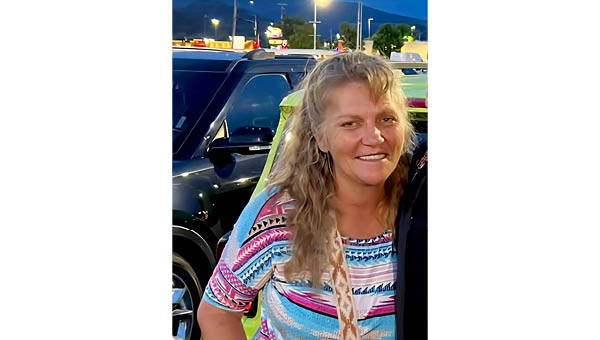Here’s one Top 10 you’ll want to avoid
Published 8:47 am Thursday, July 10, 2014
Everyone has Top 10 lists.
Some are helpful: “The world’s Top 10 fuel efficient cars.”
Some not so much: “The world’s Top 10 most expensive watches.”
And, some are funny: “The Top 10 worst movie monsters.”
But as summer begins, the Better Business Bureau and local law enforcement have a list that could help Carter Countians avoid trouble: “The Top 10 Summer Scams of 2014.”
Tennessee’s BBB receives thousands of calls and emails every year from consumers who have been scammed, or from those who avoided losing money but wanted to report the suspicious activity.
The bureau, noting that the Federal Trade Commission estimates Americans lost $1.6 billion to scams in 2013, said “Some scams are widespread, taking a lot of people for small amounts. Others are more narrowly focused but take people for thousands or tens of thousands of dollars.”
That’s why it compiled the Top 10 list – and some of the scams on that list have already made their way into Carter County.
Recently, Carter County Sheriff’s Department Sgt. Stacy McKinney investigated an incident where an individual reported he had been the victim of a fraudulent scam.
According to McKinney’s report on the incident, the man said he had received a phone call telling him he had won second place in the Publisher’s Clearing House – but that he had to pay a percentage of the taxes in order to be able to claim his prize.
The caller then asked the victim to load $1,980.22 on a pre-paid debit card and call back to provide the number of the debit card for payment of the taxes, which the victim then did.
The calls to the victim were traced to a phone number in Jamaica, McKinney said, adding because the calls came from a Caribbean island, the Sheriff’s Department has no jurisdiction to prosecute the case.
“The sad part is there is not really anything we can do about it,” he said. “All we can do is warn people.”
McKinney said he advises individuals to use caution in any situation where they are contacted by phone and someone requests payment; he recommends individuals not conduct business over the telephone.
“The best advice I can offer is if it sounds too good to be true then it probably is,” he said. “Don’t believe everything you hear over the phone.”
The Better Business Bureau’s list of what it considers the Top 10 Summer Scams of 2014 includes a wide variety of threats:
• Medical Alert Scam: With promises of a “free” medical alert system, the scam targets seniors and caretakers claiming to offer the system free of charge because a family member or friend has already paid for it. Victims were asked to provide their bank account or credit card information to “verify” their identity. The system, of course, never arrives. Easy rule of thumb – be wary of “free” offers that require your personal information upfront, and always verify with the supposed friend or family member that they actually paid for the service before agreeing to accept it.
• Facebook Friend Scam: Have you ever received a Friend Request on Facebook from someone you already thought was your friend? If you hit accept, you may have just friended a scammer. A popular recent scam has been the theft of people’s online identities to create fake profiles, which can be used in a variety of ways such as through the Facebook lottery scam. Be careful on social media, keep your privacy settings high, and don’t share confidential information. You can’t always be sure that your Friends are really your friends.
• Auction Reseller Scam: Many people turn to EBay and other online auctions sites to sell used items they no longer need, and relatively new electronics seem to do especially well. But scammers have figured out a way to fool sellers into shipping goods without receiving payment. The seller receives an email that looks like it’s from PayPal confirming the payment, but emails are easy to fake. Always confirm payment in your EBay and PayPal accounts before shipping, especially to an overseas address.
• Timeshare Scams: Some fraudulent operators target sellers of timeshares with promises they have a buyer ready to purchase the timeshare or assurances they can sell it. The timeshare scammer will require that you pay up-front fees for services, closing costs, maintenance, etc; however once you send the money, you never hear from the scammer again. Always remember to check with BBB before doing business, verify credentials, be wary of up-front fees, and don’t fall for offers that sound too good to be true.
• Foreign Lottery Scam: Someone calls to congratulate you on winning the Canadian or Spanish lottery, but the caller needs $5,000 for “delivery insurance.” To convince you it’s legit, the caller directs you to the U.S. Consumer Protection Bureau’s website. The only problem is – the organization and the website are fake. The intended victim may call a number on that site to verify it, but the person who answers is also part of the scheme. After sending the $5,000 “delivery insurance” fee, the unlucky winner never receives the promised winnings. Foreign lotteries are illegal and participation in one violates federal law.
• Publishers Clearing House Scam: You receive a phone call from an 876 area code. The caller tells you that you have won the Publishers Clearinghouse Sweepstakes, but first you must purchase a Green Dot MoneyPak card and load it with the amount he advises you to cover “taxes,” “processing fees,” etc. Once you call him back and give him the Green Dot card number, you never hear from him again and your money is gone. Just remember, if you’ve won money or prizes, you should never send money to collect your winnings.
• Arrest Warrant Scam: In this scheme, con artists take advantage of technology that changes what is visible on Caller ID units allowing them to pose as the local sheriff, police or other law enforcement agency. The caller says there is a warrant out for your arrest, and that you can pay a fine in order to avoid criminal charges. Of course, the caller doesn’t take credit cards, only wire transfers or a pre-paid debit card will do. Sometimes these schemes seem very personal; the scammer may refer to a loan or other financial matter that sounds familiar to you. Don’t be fooled into thinking you are about to be arrested, and never provide personally identifiable information or banking information to unknown callers. Law enforcement officers would never call you to collect a debt.
• Utility Scam: Your phone rings, and the person on the other end of the line identifies himself as a representative from your local electric, water or gas company. He tells you that you are late on your bill, and you need to pay immediately or your utilities will terminate. Instead of accepting payment by credit card or check, the caller wants you to pay with a Green Dot MoneyPak card, which allows the scammers to steal the funds and disappear. Utility companies will never call you and threaten immediate service disconnection.
• Grant Scam: Wouldn’t it be exciting to receive a call that you’ve been approved to receive a federal grant to pay for home repairs, unpaid bills or for a much needed vacation? In these schemes, the caller guarantees you a government grant and asks you to pay a fee for their service. This fee could be any amount, but it’s usually small enough in relation to the grant so as not to raise suspicion. Rather than supplying the consumer with the promised grant money, the scammer only sends a list of government agencies where grant applications can be obtained. Most grant sources don’t give them to individuals for personal need, even if you are financially needy, and anyone who guarantees you a grant is likely to be interested in their own financial gain, not yours.
• Phone Spoofing Scam: Your phone rings, and you check the caller ID. The name and number listed makes you do a double take. Apparently the caller is … you? Residents are reporting suspicious phone calls to BBB that, if their caller ID is to be believed, appear to be coming from their own phone number. When they answer, a recording or live person asking for personal information greets them. Other residents have reported a computerized voice claiming to have methods to lower credit card interest rates, which, of course, requires a credit card number. Don’t rely on caller ID. Scammers can use technology to make it appear as though their calls are coming from legitimate businesses or organizations or even your own home.





